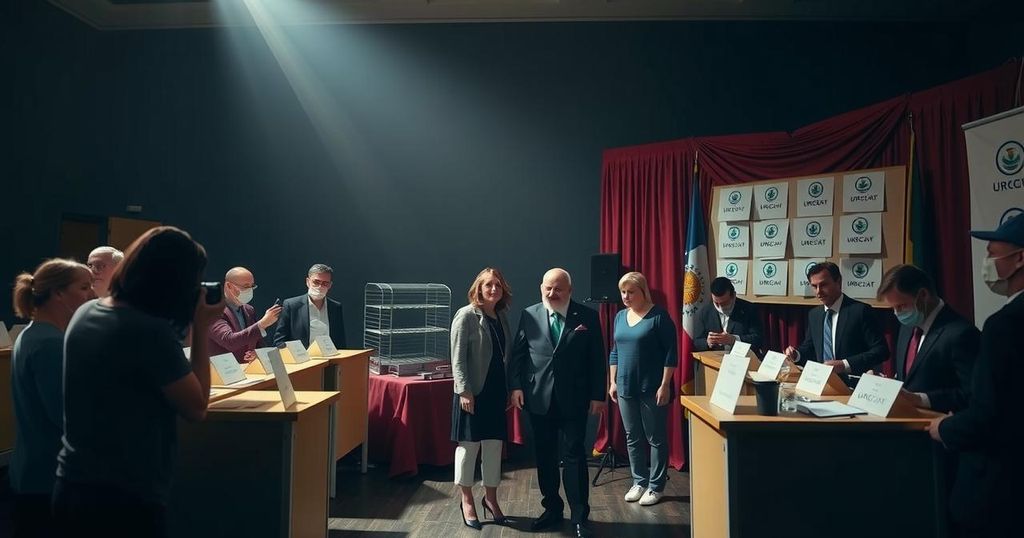Uruguay’s Presidential Run-off: A Tight Contest for Leadership
Uruguay is holding a tight presidential run-off election between centre-left candidate Yamandu Orsi and conservative Alvaro Delgado. Polls indicate a close race, with less than 25,000 votes projected to separate the candidates. As voters head to the polls, issues such as economic stability and political continuity take center stage amid broader international electoral trends.
In a closely contested presidential run-off election in Uruguay, voters are poised to decide between opposition candidate Yamandu Orsi, representing the centre-left, and incumbent-aligned conservative candidate Alvaro Delgado. The election occurs in a nation of 3.4 million characterized by its political stability and progressive policies, including legalized marijuana. Final opinion polls indicate a tight race, with projections suggesting that a mere 25,000 votes may determine the outcome.
Polling stations opened at 8 a.m. local time on Sunday, and initial results are expected shortly after closing at 7:30 p.m. Orsi, who secured 43.9% of votes in the first round for the Broad Front, aims to present a moderate leftist agenda, whereas Delgado, who garnered 26.8%, is benefitting from the support of the conservative Colorado Party. This coalition, along with his National Party, represents nearly 42% of the electorate.
The current political landscape in Uruguay contrasts sharply with the more polarized scenarios seen in neighboring countries like Argentina and Brazil, where political divides have fueled tension. Analysts suggest that Uruguay’s electorate is not primarily seeking significant political change, with many voters expressing satisfaction with the current administration’s economic performance. Both candidates are striving to attract support from the 8.0% of voters who favored smaller parties in the prior election, yet there has been a lack of new proposals to engage them as the elections approach.
With neither party holding an absolute majority in the lower house as of the recent elections, Orsi’s Broad Front has secured a sizable number of Senate seats, potentially bolstering his governance capabilities should he win. The impact of external influences, such as rising living costs and inflation affecting global voter sentiments, remains an important factor to consider in analyzing this electoral contest. As a global trend sees incumbent parties struggling for support, the outcome in Uruguay will be closely observed.
This presidential election run-off in Uruguay is significant as it culminates what has been described as a record year for elections worldwide. Uruguay, known for its political stability and progressive policies, presents a unique case among South American countries, especially given the contrasting political climates in countries like Argentina and Brazil. With a history of peaceful transitions and a relatively moderate political landscape, this election will gauge voters’ desires for continuity versus change in a context of economic resilience despite global pressures.
The Uruguayan presidential run-off serves as a vital indicator of the electorate’s sentiment towards continuity and potential change after years of stable governance. As both Orsi and Delgado seek to rally support from undecided voters, the outcome will reflect not only the preferences of the Uruguayan people but also the broader implications of incumbent political trends observed internationally. Ultimately, the elections in Uruguay will be a significant point of reference in assessing the political climate in the region.
Original Source: www.begadistrictnews.com.au




Post Comment